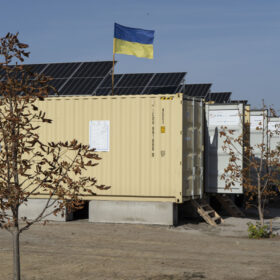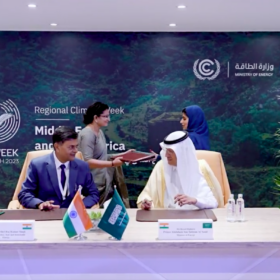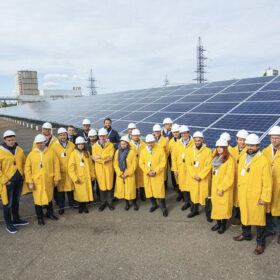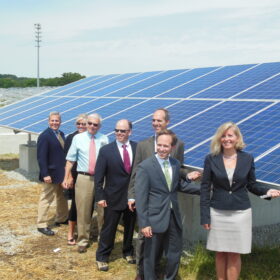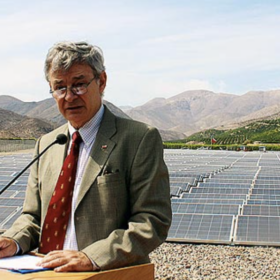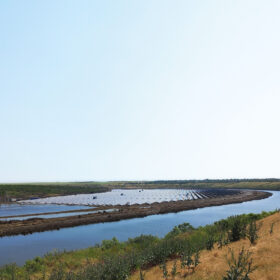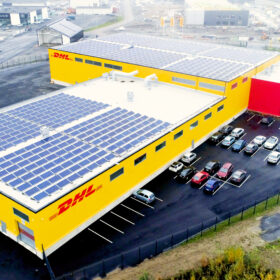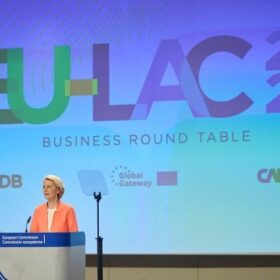German company installs PV-powered desalination plant in Ukraine
Germany’s Boreal Light says it has installed a desalination plant in Mykolaiv, Ukraine. It claims that the system – which uses 560 W solar modules to produce 125 cubic meters of clean water per hour – is Europe’s largest PV-powered desalination project.
The Hydrogen Stream: India, Saudi Arabia sign hydrogen agreement
India and Saudi Arabia have agreed to develop electrical interconnections and low-carbon hydrogen, while Masdar has partnered with Boeing ion the sustainable aviation fuel (SAF) industry.
Conventional grids place power plants in the crosshairs
Warnings about the need to decentralize Ukraine’s electricity grid, made 10 years before the Russian invasion, fell on deaf ears at the time. In the wake of war, nations across Eastern and Central Europe are alive to the risks embodied in traditional energy networks.
Weekend Read: Excluded from Russian vandalism
Built as a symbol of hope amid disaster, the decision to construct a solar site at Chornobyl may have saved it from the destruction that other power generation facilities suffered during early Russian advances in Ukraine.
Impact of overcapacity on solar stocks
BloombergNEF Senior Analyst Jenny Chase and Aurora Energy Research Renewables Lead Rebecca McManus speak with pv magazine about financial market trends for solar companies and the role of overcapacity as a driver of turbulence in the industry.
PV of the past – a look back part II
As part of a new series of articles this summer, pv magazine revisits news from the PV sector of 10 years ago. The insights evoke memories while also providing a glimpse of what the solar landscape could look like in 2030.
PV of the past – a look back
As part of a new series of articles this summer, pv magazine revisits news from the PV sector of 10 years ago. The insights evoke memories while also providing a glimpse of what the solar landscape could look like in 2030.
Weekend Read: Hopes washed away
The Ukrainian solar industry had hoped that a long-anticipated counter-offensive against the Russians would help reclaim PV assets on the eastern bank of the Dnipro River. The brutal reality is that the destruction of the Kakhovka dam has likely severely damaged solar plants in the affected territories, reports Ian Skarytovsky.
Is the EU doing enough to establish a solar manufacturing supply chain?
Compared to the Inflation Reduction Act (IRA) signed by Joe Biden’s administration in the US, the EU’s approach to establishing solar manufacturing appears slow and lacking in clarity. In this blog post, I will explore the EU’s renewable energy policy, specifically its emphasis on solar manufacturing, and evaluate whether Brussels is doing enough to establish a European solar supply chain.
The Hydrogen Stream: EU, Argentina, Chile, Uruguay to partner on hydrogen
The European Commission and the European Investment Bank have agreed to collaborate with Argentina, Chile and Uruguay on hydrogen, while Masdar, Mitsubishi and Inpex have said that they will use green hydrogen to produce e-methane and polypropylene.
